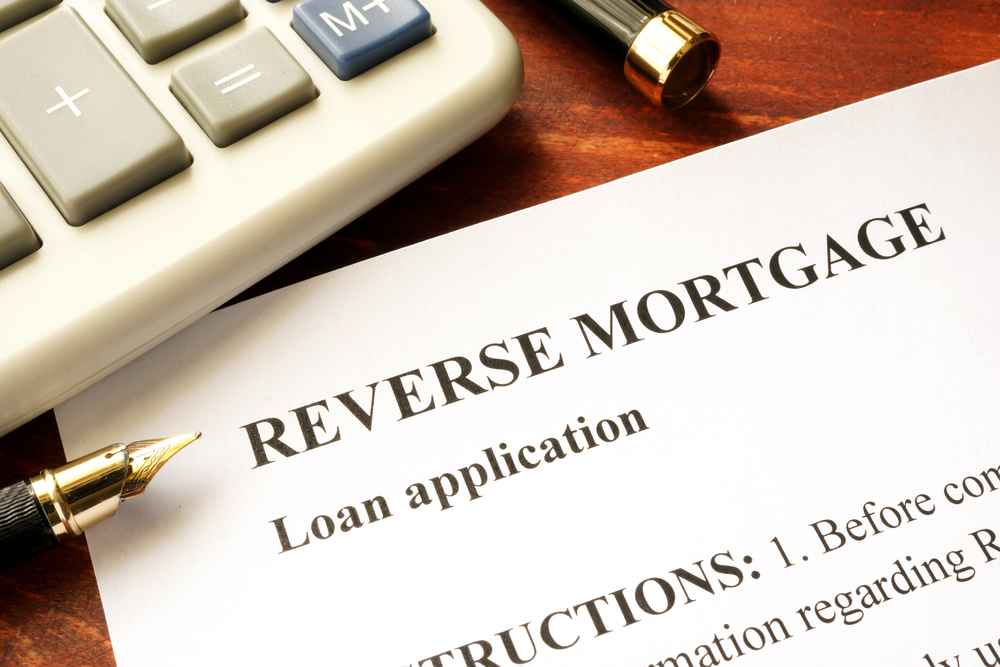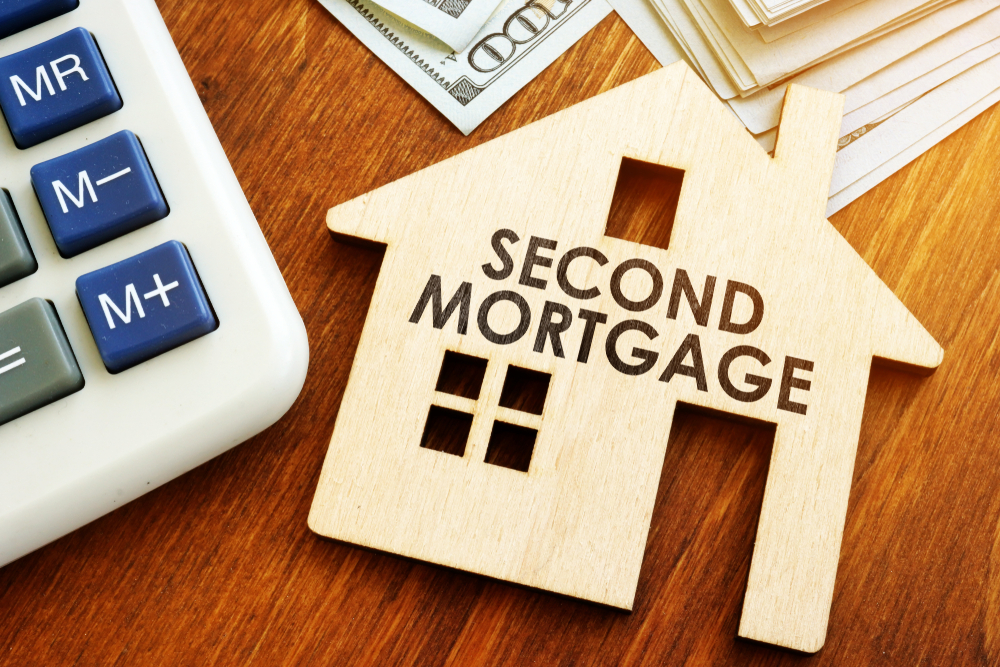 [email protected]
[email protected]
Money Solutions Inc. FSRA#10731

 [email protected]
[email protected]
Money Solutions Inc. FSRA#10731


A traditional mortgage is a loan that you get from a lender to buy your dream home. An evaluation of your finances is part of the application process, and getting a mortgage is seen as a prerequisite for home ownership. And so, you might now wonder what is a reverse mortgage?
A reverse mortgage is a loan secured by a primary house that can be used to access equity without requiring ongoing payments. Typically, these kinds of mortgage loans are given to homeowners who are above 55 years old and want to borrow money from the equity in their house without selling or making a lot of mortgage payments. For elderly people who want to expand their bank account with an income supplement, go on vacation, finish house renovations, buy a second home, pay off debt, offer living inheritances, and invest in a new property – a reverse mortgage loan is an excellent choice. Money from a reverse mortgage can also be utilized for almost anything.
But how exactly does a reverse mortgage operate? Let’s find out the details of a reverse mortgage loan below –
Unlike typical mortgages, a reverse mortgage is only offered in some of banks, like Home Equity Bank and Equitable Bank. Both demands you to obtain Independent Legal Advice (ILA) and get a no-negative equity guarantee, meaning that as long as you fulfill your mortgage commitments, the amount you will be required to pay on the due date won’t be greater than the fair market value of your house. The application procedure for a reverse mortgage also differs from that of a regular mortgage. Most of the senior citizen prefers it as they can still own a house and can receive tax-free funds, and it has no impact on Guaranteed Income Supplements (GIS) and Old Age Security (OAS).
To be eligible for a reverse mortgage loan, you must be 55 years of age or above and should own a house to qualify for the same. The funds from the reverse mortgage are used to pay off any mortgages that are owed on the house. You may combine this property with other properties to improve your borrowing capacity, and this property must also be your principal residence. If you are married, both of you must be listed on the application, and your spouse must be at least 55 years old. To apply for this type of mortgage, there are no specific conditions relating to your income or credit score, including previous bankruptcy.
Following the submission of your application, the bank will consider a number of factors. They may evaluate the terms of your current mortgage with your lender as well as your age, state, location, and appraised worth of your house. You may borrow up to 55% of the value of your home, without any limit. Typically, the older you are, the more money you are eligible for.
If your application is approved, you can decide whether to take the full amount that the bank is providing you or only a portion of the amount. Firstly, you must use the money you get to settle any unpaid secured loans or lines of credit secured by your house, which also includes your current mortgage. The remaining funds can then be used as per your requirements. If at a later time you decide you want to borrow more money, you can do so up to the amount the bank has offered or you can refinance.
You are not compelled to make monthly payments on a reverse mortgage loan. In fact, you are not required to pay anything unless one of the following three circumstances occurs –
Before looking for reverse mortgage approval, make sure to consult an experienced mortgage broker for the best help. Because an expert mortgage broker can assist you to get quick approval in regard to any kind of mortgage loan. Whether it’s your first mortgage or a reverse mortgage loan, Incredible Mortgages has the best team to ensure your application process is easier, quick, and more informative.
In case you are unsure if this type of mortgage loan is your ideal match, you can simply contact us at https://incrediblemortgages.ca/ to explore more about the mortgage options available with us. Visit today!

Your payment won’t alter over the period if your mortgage has a true variable rate. Many people may feel at ease because this ensures a consistent monthly income flow. With an increase in the interest rate, a higher percentage of that payment will be used to pay interest and a smaller portion will be used to pay principle. But the payout is consistently the same.
However, that does not ensure that you won’t have to make any additional payments during the course of the mortgage.
You may reach a rate known as a trigger rate if the prime rate keeps increasing. At this time, the mortgage payment is insufficient to pay the interest owed.
What happens then?
The additional interest, also known as delayed interest, will be added to the outstanding mortgage balance. Following that, the sum will keep rising with each payment until it reaches the trigger point.
The trigger rate and the trigger point are two distinct concepts. When your mortgage debt surpasses the original loan amount, that is the trigger. This is sometimes referred to as negative amortization and indicates that your amortization duration has increased since the start of your mortgage. As mentioned earlier, the trigger rate.
Once you reach your trigger rate, your mortgage lender will typically let you know. Although every lender may have a different policy on this, it’s probable that you won’t need to do anything right away. But it doesn’t imply you should do nothing while you watch your balance increase from where it was when your mortgage first started.
You can now do the following steps:
Increase your mortgage payment
Your original loan agreement’s trigger rate, which can be located there, will determine the amount of extra payment needed to cover the postponed interest. When you hit the trigger rate, your lender must inform you and provide the deferred interest amount. Then, you might raise your payment to account for the higher interest. I would advise raising your payment if you can comfortably do so in order to pay down some of the debt as well.
Make a lump sum payment
Every additional payment you make on your mortgage is added right to the principal. This will immediately lower your effective amortization, delaying the trigger point or completely removing any chance of ever reaching it.
Convert to a fixed rate
I consistently receive a flood of questions from people with variable rate mortgages asking if they should lock in a fixed rate whenever interest rates rise. This subject alone might fill a whole blog. You would lock in one of the highest fixed rates we have seen in the past 14 years if you choose this choice.
The Bank of Canada will need to switch its emphasis from fighting inflation to safeguarding the economy because a recession is virtually probably on the horizon. They are predicted to start slowing down around 2024, at which point we can anticipate them to start doing so. A rate drop is currently anticipated by a few of the big banks for the last quarter of 2023. Falling bond yields as a result of this will cause fixed mortgage rates to decrease as well.
Anyone picking a fixed rate today who decides to do so will almost definitely be wanting to convert to a lower rate at that moment.
However, your penalty will increase as fixed rates decline further. You may easily reach a point where the penalty would make switching unaffordable, locking you into the costlier fixed-rate mortgage. Although every case can vary a little bit and there is no universally applicable mortgage advice, I believe individuals who choose a fixed rate mortgage now will come to regret their decision in a few years.
Only time will tell, and anything can happen.
At Incredible Mortgages, we emphasize Client Prioritization in such a way that entirely Revolutionizes the relationship between the Client and the Lender. You can visit https://incrediblemortgages.ca/ for mortgage solutions.

When setting up a new mortgage, there are numerous choices to be made. Choosing a fixed or variable rate, the length of the term, the duration of the amortization period
Prior to the changes in mortgage regulations that went into effect on November 30, 2016, short-term mortgage rates were often lower than those of five-year choices. The rate decreases with shorter terms. Since then, there hasn’t been much interest in shorter-term mortgages due to the changing times.
Today, shorter-term mortgages are still frequently more expensive, but they are currently making a very significant comeback.
Contrary to popular assumption, the rate of your mortgage is not its most crucial part.
It’s not even the savings over the term.
Yes, these are all significant, but the most significant factor is the amount of money you will save over the course of your mortgage.
With the appropriate approach, you can maximize your overall savings, and occasionally picking a product with a higher rate but a shorter commitment can result in further savings.
Today, someone choosing a 5-year fixed mortgage rate would be securing their rate at its highest level in 14 years. It’s not necessarily a bad decision because of that. What is good for one individual cannot be right for the next, so it really boils down to what makes you feel the most comfortable.
A five-year variable rate or a shorter-term fixed rate are the choices (variable rate mortgages are seldom offered in terms less than 5 years).
But if you’re trying to find a middle ground, a shorter-term fixed rate is a good choice.
Before coming to a conclusion, let’s first look at what is being forecasted moving forward.
Inflation will eventually reach the Bank of Canada’s target level of 2.00%, and supply will finally increase again.
By then, our economy will have suffered so severe harm that the Bank of Canada will need to make it a top priority. By cutting their pricing, they will need to increase demand. The more aggressively they must cut rates, the worse the economy will be.
Bond yields can be anticipated to decrease when the Bank of Canada begins to lower its rate or even when there is just a suggestion that a rate cut is imminent. Fixed rates will be under pressure to decline as a result, which they will do.
This is why, even if the rate is greater than the 5 year option, a shorter term fixed rate mortgage might be a wonderful option. A 5 year fixed product that you chose today would not expire until late 2027. Who knows where the rates will be at that point.
Today, the end of 2024 would be the renewal date for a 2-year fixed rate… which, if the rate cuts materialize as expected, could be the ideal time to benefit from them.
At the moment, the lowest 2 year fixed rate is 4.84%*, and the lowest 5 year fixed rate is 4.64%*. By the end of 2 years, the difference between the two options on a $500,000 mortgage comes to about $2,009.
Let’s assume that the 5 year fixed rate will be 2.99% at the end of the 2-year period. The remaining three years at the higher rate would be available if you choose the five-year option at 4.64%. However, if you went with the 2 year option, you would save $23,289 over the remaining 3 years. At the end of five years, you are ahead by roughly $21,000 after deducting the extra $2,009 you paid for initial the 2 year term.
Of course, I’m using this hypothetical scenario as an illustration. Nobody can predict where interest rates will go in 3 years, but given the present economic forecasts, it may very well come to pass.
Future developments are still fraught with uncertainty; therefore, a shorter-term fixed rate can be a terrific alternative to more risky variable rate options.
Rates will eventually drop. The only question is when. It all depends on how swiftly the Bank of Canada can control inflation. Within the next two years, rates should be lower if the present predictions come true. Everything is possible, and only time will tell. You can visit Incredible mortgage for mortgage solutions.

How do you first tell if you have terrible credit? What makes you think that your application won’t be accepted? Never assume that a homeowner’s choices for a second mortgage are closed. You can’t be confident that you won’t be rejected unless you’ve thoroughly investigated every source of funding that might be available. The best person to assess your possibilities for a mortgage with negative credit is a mortgage broker. A second mortgage could be quite helpful for many homeowners. We comprehend the risks and the anxiety associated with being rejected. We also comprehend that you might desire to steer clear of conventional major banks (they may not approve bad credit second mortgage applications).
To choose a different lender is an excellent starting step in your search for a second mortgage. Credit Unions, Trust Companies, Mortgage Investment Companies (MIC’s), and private lenders are examples of alternative lenders. Your best chance is to speak with a seasoned mortgage broker who works with these kinds of lenders in order to locate a good fit for your financing requirements. Even better if you can locate a mortgage broker who specialized in negative credit and has a wide range of alternative lenders on speed dial.
Alternative lenders are not subject to the same limitations as large banks. We have access to a sizable network of nontraditional lenders. Our goal is to match your application with the best candidate. We are aware of the criteria our lenders use to evaluate applications. We can help you every step of the way. We will nevertheless conduct a credit check even when you have poor credit. Even if it’s bad, we will still evaluate your credit score as part of our commitment to securing the best mortgage rate. If your credit score isn’t as bad as you believe it is, most alternative lenders are willing to provide a better deal. Based on the amount of equity in your property, our lenders search for reliable investments. To get qualified for a second mortgage with terrible credit, you don’t need to have strong credit or a salaried job.
You can assess your home equity before applying using the helpful calculator on our website. Fortunately, alternative lenders take your home equity into account before any other financing concerns. Equity is ultimately what counts most. Since there is less risk involved if you have equity in your house, it is simpler for a lender to decide to lend you money.
You’ll raise your credit score if you want to use the second mortgage to pay off high-interest credit card debt. You might use your second mortgage as a tool to repair your credit. Applying for home equity loans to manage debt and avoid high interest rates is a frequent practice. Bankruptcy, consumer proposals, and debt consolidation loans are alternatives to refinancing. It can be more difficult than you think to get approved for a debt consolidation loan. Not to mention, your bank might not want to consolidate your debts if they aren’t all with them. You get to determine where the money goes with a second mortgage. You decide who you want to pay. The fact that you won’t have to cope with your bank’s stringent loan requirements is another thing you’ll love.
Before proceeding, it’s crucial to recognize the dangers, just like with any financial transaction. Before you sign documents for a second mortgage, bear the following in mind:
Again, like with any financial transaction, be sure you fully understand everything before moving forward. Be aware of any potential dangers going into your mortgage deal. We want to be certain that you think taking this action is the appropriate choice for you.
Once you are aware of the hazards associated with a second mortgage with bad credit, compare them to the advantages. While increasing the debt(s) secured against your property has some dangers, there are also clear benefits. First of all, by switching your high interest debts to a mortgage with a significantly lower interest rate, you can avoid bankruptcy and save a lot of money. Rarely will the interest rate on a mortgage be as high as the interest rate on your other obligations. A second mortgage can benefit you in a number of ways, including:
Combine your debts by taking up a second mortgage, which, despite having a slightly higher interest rate, will still be less expensive than the majority of your high-interest credit card debt. Put everything in one location to speed up repayment.
Consider the goals you can achieve with a second mortgage before deciding if it seems right for you. It’s comforting to know that you can still receive a second mortgage with negative credit when you’re on the verge of a deadline or regularly short on funds. Make getting a second mortgage the initial step towards enhancing your financial situation.

Being the hottest housing market in the nation, it’s quite challenging to grab the best home loan deals in Toronto. For first-time home buyers, it’s more complex to pick the right mortgage broker in Toronto because diverse financial institutes are offering mortgage products globally. When thousands of dollars are at stake, you need to stay more alert and get a professional who can make the entire process speedy to get your approvals.
In case you want to get a new or renew your mortgage, make sure to select the right mortgage broker who has years of expertise to provide affordable services. A lack of experience can result in more challenges and increase your mortgage rates as well.
Nobody wants to make a situation more complex, and it’s exactly what may occur if you are searching to get an experienced mortgage broker in Toronto. Your expectations and requirements are a major concern when choosing a mortgage broker for first-time home buyers. A highly-experienced mortgage broker is often the one who’s got specialization in a certain type of financing. Don’t hire a mortgage broker who has expertise in extremely low rates if you can’t validate your income.
So, finding the right mortgage broker in Toronto is important to ensure you can get a proper representation of your financial status. You can also save your time, money, and trouble by working with a qualified mortgage broker, especially if you’ve got poor credit or problems proving your source of income.
Mortgage brokers are generally authorized to work with multiple lenders, although they don’t work for any particular bank. And so, an experienced mortgage broker gets a variety of options whenever it comes to your approval for home loans. You further don’t have to put in as much effort to compare rates when working with the right mortgage broker in Toronto.
With the help of a qualified mortgage broker, you will get numerous access to prospective lenders who aren’t concerned about your credit situation or with your existing income. Several brokers can also provide access to several lenders who are experienced to work with challenging situations. It’s wise to always verify with the better business bureau to make sure you are working with a trustworthy mortgage broker in Toronto.
Regardless of your complex situation, we at Incredible Mortgages is ready to help you with confidence. Having years of experience to support customers with commercial and industrial mortgage loans, we’re here to take the first step toward your success. Our highly-experienced mortgage brokers can also assist you whether you are a first-time home buyer, searching for a fixed-rate mortgage, or an existing homeowner looking to renew a variable-rate mortgage.
In case you’ve got any problem related to poor credit or non-traditional income situation, which might restrict you to buy first-time homes in Toronto. But, Incredible Mortgages is experienced to provide options to several mortgage brokers for having the best help. From first-time home loans to commercial mortgages and credit card consolidation, we are ready to connect you with prospective lenders for getting quick approval at a standard rate of interest. No matter what’s your current situation, we come equipped with outstanding emergency funding to help those borrowers.
To learn more about our industrial mortgage services, you can simply give us a call at 416-991-8711 today for the discussion!

A second mortgage is extremely advantageous when you need to get some extra cash. You can use the equity in your residential property to receive cash, which you might need for a variety of reasons using second mortgages. It’s frequently termed as a “home equity loan”. Although it’s tough to get a second mortgage from traditional banks due to its strict regulations, which private lenders can help the borrowers.
The following are major things to know about private second mortgages as important –
The best thing about private second mortgages is equity, which is quite a significant consideration. Most traditional banks don’t offer a second mortgage if you’ve got a poor credit score or invalid income records. If there are even some other concerns, you won’t get approval from them.
Private lenders are often referred to as alternative lenders, who are mostly interested in your equity. Consider yourself accepted if your home has enough equity, even if you’ve got poor credit.
In case you are experiencing a job loss, you might surely experience a shortage of funds. Despite being a valuable asset, your home is barely a liquid source of funds. In this kind of difficult situation, private second mortgages can offer the best help to borrowers.
Even without income, some private lenders are prepared to provide you with a second mortgage. They deduct the monthly repayments from the advance loan they are making. Consequently, you will have up to a year before you need to begin paying payments. You won’t find this option with traditional banks. Furthermore, you will get several other options if you are working with a private lender.
Regardless of your objectives, getting the assistance of a second mortgage is always helpful. The funds from a second mortgage are used in a variety of ways, which include –
You may even utilize the funds from a second mortgage to pay off travel or unexpected expenses in an emergency. However, it’s crucial to examine what you require as you need to repay the loan.
Private lenders are investors and are often prepared to offer money if you’ve got equity. However, it’s crucial to realize that the majority of private second mortgages have interest rates that are higher than what you would get from traditional banks and a home equity line of credit. These lenders do anticipate a little better return because they are taking on a greater risk than the majority of big banks.
To be specific, getting a second mortgage is still worthwhile as it’s effective to manage your monetary crisis. A highly-trained mortgage broker with expertise in second mortgages can also negotiate the most favourable rates and flexible conditions for your loans.
Private mortgages aren’t always expensive or complicated and can ensure your approval steps are cost-effective and transparent. In fact, qualified mortgage brokers are enough experienced to approve clients with a second mortgage, even if they have challenging situations.
Hence, if you want to get quick approval with a second mortgage at minimum rates, you are recommended to look for alternative/ private lenders. You can ultimately save your time and money if you are working with a broker who specializes in private mortgage financing.
Unfortunately, traditional banks are advantageous to manage poor credit scores when you are in a complex situation. It’s rather simple to get instant cash if only you are in a good shape, or choose an alternative to consult an experienced private lender for handling tough financial situations. For today’s homeowners, a private second mortgage can provide a way to handle difficult financial conditions and make them easily manageable.
Whether you need to get a private second mortgage, commercial mortgage, or credit card consolidation, we at Incredible Mortgages can help you with confidence. Our highly-experienced mortgage brokers can assist you to make the worst situation seem manageable, even if you need to get instant cash. So, feel free to give us a call at 416-991-8711 today for the discussion! Let’s put our experience to get your quick approval.